Technology has revolutionized various industries, and the world of recruitment is no exception. As artificial intelligence (AI) continues to advance, it is transforming the way companies find and hire talent. However, with every opportunity comes a set of challenges. In this article, we will explore the rise of AI in recruitment and delve into the numerous opportunities it presents, as well as the challenges that must be addressed.
Understanding AI and Its Role in Recruitment
Defining AI in the Context of Recruitment
AI, in simple terms, refers to machines and software systems that can perform tasks requiring human intelligence. In the context of recruitment, AI tools and technologies are being used to automate and streamline various stages of the hiring process, from sourcing candidates to predicting their performance.
AI in recruitment involves leveraging machine learning algorithms, natural language processing, and big data analysis to make data-driven decisions and unlock valuable insights from vast amounts of information.
One key aspect of AI in recruitment is its ability to reduce bias in the hiring process. By analyzing data objectively and focusing on relevant criteria, AI can help mitigate unconscious biases that may influence human decision-making.
The Evolution of AI in Recruitment Processes
The use of AI in recruitment is not a recent phenomenon. Over the years, it has evolved from basic automation of administrative tasks to more sophisticated applications. Initially, AI was primarily used for resume screening and applicant tracking systems, but now it encompasses a wide range of capabilities.
Recruiters can now employ AI-powered chatbots for initial candidate interactions, video interviewing platforms that analyze facial expressions and language patterns, and even AI-driven virtual reality simulations to assess candidates’ skills and abilities.
Furthermore, AI in recruitment is not limited to just the hiring process. Companies are also utilizing AI to improve employee retention by analyzing factors that contribute to turnover and identifying strategies to enhance employee satisfaction and engagement.
The Opportunities Presented by AI in Recruitment
Enhancing Efficiency in Recruitment
One of the most significant advantages of AI in recruitment is its ability to enhance efficiency. AI tools can sift through thousands of resumes in a matter of seconds, saving recruiters countless hours of manual effort.
By automating routine tasks, AI allows recruiters to focus on building relationships with candidates and making more informed decisions. This not only speeds up the hiring process but also improves the overall candidate experience, resulting in better talent acquisition outcomes.
Predictive Analytics and Talent Acquisition
AI’s predictive analytics capabilities are game-changers in recruitment. By analyzing past hiring data and identifying patterns, AI algorithms can predict which candidates are most likely to succeed in a particular role.
These insights enable recruiters to make data-driven hiring decisions, increasing the chances of selecting candidates who will thrive in their roles and contribute to the organization’s success. Predictive analytics also aids in identifying skill gaps and planning for future workforce needs.
AI and Bias Reduction in Hiring
Bias in the hiring process has long been a concern for recruiters. AI offers a promising solution by removing human biases and promoting diversity in recruitment.
By basing decisions on objective data, AI can evaluate candidates solely on their qualifications and fit for the role. This mitigates the risk of unconscious biases related to gender, ethnicity, or other personal characteristics that may inadvertently influence human decision-making.
AI, however, must be developed and trained with care to ensure that it does not inherit biases from existing data or perpetuate discriminatory practices. Ethical considerations in AI recruitment will be explored further in the next section.
Furthermore, AI in recruitment goes beyond just resume screening and candidate evaluation. It can also assist in streamlining the interview process. AI-powered chatbots can conduct initial interviews, asking candidates relevant questions and assessing their responses in real-time.
These chatbots can be programmed to simulate human conversation, making candidates feel more comfortable and allowing them to showcase their skills and experiences. The chatbot can also provide immediate feedback to the candidate, giving them valuable insights into their performance and areas for improvement.
Personalized Candidate Experiences
Another area where AI shines in recruitment is in creating personalized candidate experiences. With AI, recruiters can tailor their communication and engagement strategies based on individual candidate preferences and behaviors.
By analyzing candidate data, such as their past interactions with the company’s website or previous applications, AI can provide recruiters with valuable insights. This information can be used to personalize job recommendations, suggest relevant content, and even anticipate the candidate’s needs and preferences.
Personalization not only enhances the candidate experience but also increases the likelihood of attracting and retaining top talent. Candidates feel valued and appreciated when their unique needs and interests are taken into consideration throughout the recruitment process.
The Challenges of Implementing AI in Recruitment
Ethical Considerations in AI Recruitment
As more companies embrace AI in recruitment, it is crucial to address the ethical implications that arise. Algorithms can inadvertently perpetuate biases if they are trained on biased data or not thoroughly tested for potential discriminatory outcomes.
Organizations must ensure that their AI systems are designed to be fair, transparent, and accountable. Regular audits and diverse teams of experts should be involved in monitoring and refining AI recruitment processes to prevent any ethical breaches.
One specific ethical consideration in AI recruitment is the potential impact on diversity and inclusion efforts. While AI can streamline the hiring process, there is a risk of perpetuating existing biases and excluding underrepresented groups. To mitigate this risk, organizations should prioritize diversity in the development and training of AI algorithms, ensuring that they are inclusive and representative of a wide range of backgrounds and experiences.
The Risk of Over-reliance on AI
While AI can significantly augment recruitment efforts, over-reliance on technology possesses certain risks. It is essential to strike the right balance between human judgment and machine-based decision-making.
Recruiters must monitor and validate AI-generated recommendations to ensure accuracy and avoid overlooking exceptional candidates who may not fit conventional molds. Building human-AI partnerships can leverage the best of both worlds — the efficiency of AI and the intuition and empathy of recruiters.
Furthermore, the risk of over-reliance on AI extends beyond candidate evaluation. It also pertains to the potential loss of personal connection and human touch in the recruitment process. Job seekers often value interactions with recruiters and hiring managers, as it provides an opportunity to showcase their skills and personality. Organizations must carefully consider how to maintain a balance between efficient AI-driven processes and the importance of human interaction in creating meaningful connections with candidates.
Addressing AI Transparency and Explainability
Another challenge in AI recruitment is the need for transparency and explainability. Candidates who are subjected to AI-driven screening or evaluation processes deserve to understand how decisions are made.
Organizations should strive to provide clear explanations of the AI algorithms used, how they impact decision-making, and which variables contribute to the final outcomes. Enhancing transparency builds trust with candidates while also helping recruiters identify potential flaws or biases within the AI systems.
Additionally, organizations should consider the potential legal and regulatory implications of AI recruitment. As AI continues to evolve, there may be increased scrutiny and regulations surrounding its use in hiring practices. It is crucial for organizations to stay informed about emerging laws and guidelines to ensure compliance and ethical practices.
By addressing these challenges head-on, organizations can harness the power of AI in recruitment while maintaining fairness, accuracy, and transparency. Striking the right balance between technology and human expertise will enable organizations to make informed decisions and create a positive candidate experience.
The Future of AI in Recruitment
Emerging AI Technologies in Recruitment
The future of AI in recruitment holds great promise, with several emerging technologies on the horizon. Natural language processing and sentiment analysis technologies continue to advance, enabling more accurate candidate assessments through text and speech analysis.
These technologies are not only capable of understanding the words candidates use, but also the underlying emotions and sentiments behind them. By analyzing the tone and context of a candidate’s responses, recruiters can gain deeper insights into their suitability for a role. This allows for a more comprehensive evaluation, going beyond just the surface-level information provided in a resume or application.
AI-driven chatbots are also evolving, becoming more conversational and capable of simulating human-like interactions. These chatbots can engage with candidates in real-time, answering their questions, providing information about the company and the role, and even conducting initial screening interviews. This not only saves time for recruiters but also provides a more seamless and personalized experience for candidates.
Additionally, machine learning algorithms are constantly improving, leading to more accurate candidate matching and personalized recommendations. These algorithms can analyze vast amounts of data, including resumes, job descriptions, and candidate profiles, to identify patterns and make predictions about the best fit for a particular role. This not only streamlines the recruitment process but also increases the chances of finding the right candidate for the job.
Preparing for an AI-Driven Recruitment Future
To leverage the full potential of AI in recruitment, organizations need to invest in AI-ready infrastructure and upskill their workforce. Recruiters need to embrace the change and develop their proficiency in leveraging AI technologies to make more informed and efficient hiring decisions.
Training programs and workshops can be implemented to help recruiters understand how to effectively use AI tools and platforms. This includes learning how to interpret the insights provided by AI algorithms, understanding the limitations of AI, and knowing when to rely on human judgment. By combining the power of AI with human expertise, organizations can achieve the best results in their recruitment efforts.
Additionally, organizations should facilitate open discussions around the ethical use of AI in recruitment, ensuring that fairness, diversity, and inclusion remain central to the adoption and implementation of AI-driven recruitment practices. It is crucial to address concerns regarding bias and discrimination that may arise from relying solely on AI algorithms. Regular audits and reviews of AI systems can help identify and rectify any potential biases, ensuring a fair and inclusive recruitment process.
Furthermore, organizations can also explore partnerships with AI experts and researchers to stay updated on the latest advancements in the field. By collaborating with experts, organizations can stay ahead of the curve and effectively incorporate cutting-edge AI technologies into their recruitment strategies.
In conclusion, the rise of AI in recruitment offers a variety of opportunities to improve efficiency, enhance talent acquisition, and reduce bias. However, with these opportunities come challenges that need to be addressed, such as ensuring ethical usage, avoiding over-reliance, and promoting transparency. By understanding and overcoming these challenges, organizations can harness the power of AI to transform their hiring processes and pave the way for a future of intelligent recruitment.
As we navigate the future of AI-driven recruitment, it’s essential to partner with experts who understand both the power of technology and the value of human insight. Jennings Executive Search is at the forefront of this evolution, specializing in senior-level placements where precision and expertise are paramount. Discover how Jennings Executive leverages AI to enhance talent acquisition for roles like Director of Pricing Strategy and Global Pricing Lead, while maintaining a commitment to ethical practices and personalized experiences. Learn more about our approach and how we can elevate your recruitment strategy in the age of AI.
About Jennings Executive Search
Jennings Executive Search is a premier executive recruiting firm specializing in connecting top-tier talent with leading companies in private equity, finance, pricing strategy, and consulting sectors. With a deep understanding of the nuanced needs of these industries, Jennings Executive Search stands out for its ability to source candidates who not only meet but exceed expectations.
Whether you are looking to build a robust team, find a transformative leader, or gain insights into talent trends in your industry, Jennings Executive Search is your trusted partner. Connect with us to discover how we can help elevate your organization’s talent strategy and drive success.
















